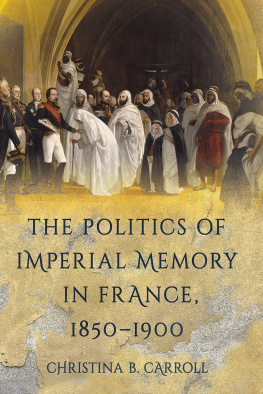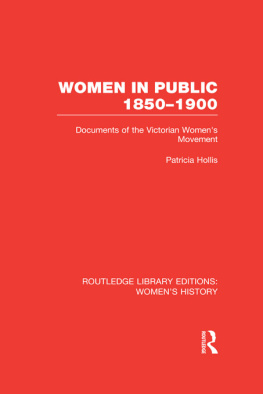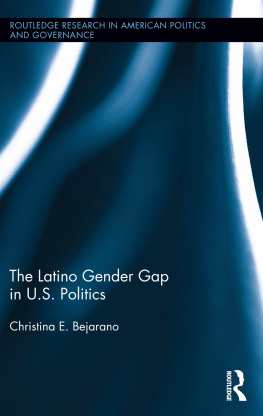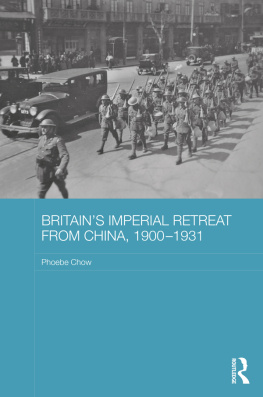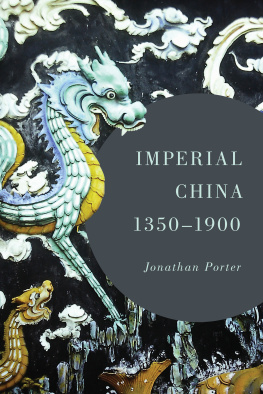Christina B. Carroll - The Politics of Imperial Memory in France, 1850–1900
Here you can read online Christina B. Carroll - The Politics of Imperial Memory in France, 1850–1900 full text of the book (entire story) in english for free. Download pdf and epub, get meaning, cover and reviews about this ebook. year: 2022, publisher: Cornell University Press, genre: Politics. Description of the work, (preface) as well as reviews are available. Best literature library LitArk.com created for fans of good reading and offers a wide selection of genres:
Romance novel
Science fiction
Adventure
Detective
Science
History
Home and family
Prose
Art
Politics
Computer
Non-fiction
Religion
Business
Children
Humor
Choose a favorite category and find really read worthwhile books. Enjoy immersion in the world of imagination, feel the emotions of the characters or learn something new for yourself, make an fascinating discovery.
- Book:The Politics of Imperial Memory in France, 1850–1900
- Author:
- Publisher:Cornell University Press
- Genre:
- Year:2022
- Rating:4 / 5
- Favourites:Add to favourites
- Your mark:
- 80
- 1
- 2
- 3
- 4
- 5
The Politics of Imperial Memory in France, 1850–1900: summary, description and annotation
We offer to read an annotation, description, summary or preface (depends on what the author of the book "The Politics of Imperial Memory in France, 1850–1900" wrote himself). If you haven't found the necessary information about the book — write in the comments, we will try to find it.
The Politics of Imperial Memory in France, 1850–1900 — read online for free the complete book (whole text) full work
Below is the text of the book, divided by pages. System saving the place of the last page read, allows you to conveniently read the book "The Politics of Imperial Memory in France, 1850–1900" online for free, without having to search again every time where you left off. Put a bookmark, and you can go to the page where you finished reading at any time.
Font size:
Interval:
Bookmark:
| AMAE | Archive du ministre des affaires trangres, La Courneuve |
| AN | Archives nationales de France, Pierrefitte-sur-Seine |
| ANOM | Archives nationales doutre-mer, Aix-en-Provence |
| SG | Archives de la Socit de gographie, Bibliothque nationale de France, Paris |
| SHD | Service historique de la dfense, Vincennes |
This book would not exist without the support of many individuals and organizations. Lloyd Kramers guidance at the University of North Carolina at Chapel Hill shaped this project from the beginning; our conversations about intellectual and cultural history helped me formulate my early research questions, and he has supported this project through its many stages. I am deeply grateful for his detailed feedback on my numerous drafts. Dan Sherman, who sparked my interest in memory and colonialism, has also offered very helpful advice on my work. Emily Burrill, Don Reid, and Jay Smith suggested new analytical frameworks, pointed me toward new sources, and asked important questions that helped me reconceptualize the material. Christopher Browning, Konrad Jarausch, Lisa Lindsay, and Steven Vincent also helped shape the project at different stages.
I have presented on different aspects of this book at numerous conferences, including those of the Western Society for French History, the Society for French Historical Studies, and the Society for the Study of French History, as well as the Nineteenth-Century French Studies Association. I am grateful for the questions and comments offered by fellow panelists, commentators, and audience members. Members of the Triangle French History and Culture Seminar also provided thoughtful and formative feedback on my first chapter. Finally, the Breisach Colloquium at Western Michigan University and the Faculty Study at Kalamazoo College generously invited me to present on sections of later chapters.
I have also benefited from the support of my colleagues and friends, who have spent more years than Id like to count listening to me talk about this book. Nancy Bisaha at Vassar College supported my interest in history and encouraged me to pursue it. Zach Smith, Alison Boyd, and Brittany Lehman all read drafts of the project and helped me sharpen my ideas. At various stages, conversations and meals with Tiffany Ball, Maeve Doyle, Emily Fish-baine, Nicole Giannella, Lesley Graybeal, Mike Hardin, Margaret Hazel, Derek Holmgren, Sarah Lowry, Aman Luthra, Firth MacMillan, Brad Proctor, Danielle Purifoy, Ben Reed, and Matthew Thomann have kept me sane. My fellow French historians at UNCJoseph Bryan, Bethany Keenan, Greg Mole, Anndal Narayanan, and Laura Simsformed an intellectual community that sustained me both in Chapel Hill and France. Finally, my colleagues at Kalamazoo College have also served as an ongoing source of support. The members of the history department welcomed me warmly, and they have offered advice that has helped steer me through the publication process. The members of my writing groupJustin Berry, Beau Bothwell, Anne Marie Butler, Ivett Lopez Malagamba, Shanna Salinas, and Francisco Villegasoffered invaluable feedback on drafts and proposals.
Research support from the Belle Skinner Fellowship at Vassar College, the George Mowry Fund at the University of North CarolinaChapel Hill, the Socit des professeurs franais et francophones dAmrique, the Society for French Historical Studies, and the Doris G. Quinn Foundation made this project possible. Colgate University and the Marlene Crandell Francis Endowment at Kalamazoo College funded additional research trips critical to the books development. I am also grateful to the librarians and archivists at the Archives nationales doutre-mer, the Bibliothque nationale de France, the Archives nationales, the Service historique de la dfense, and the Archives diplomatiques for offering essential guidance and finding aid.
I also want to express my gratitude for the team at Cornell University Press. Emily Andrew was an incredibly supportive editor; she and her editorial assistant, Allegra Martschenko, played an indispensable role in bringing this project to fruition. Bethany Wasik stepped in at a critical moment to shepherd the book through its final stages. Thanks, too, to Don McKeon for his excellent copyediting and to Jennifer Savran Kelly for overseeing the production process. The insights and feedback of the two anonymous reviewers have made the book much stronger than it otherwise would be. An earlier version of chapter 1 appeared as Imperial Ideologies in the Second Empire: The Mexican Expedition and the Royaume Arabe in French Historical Studies 42, no. 1 (February 2019). Carol Harrisons feedback and support were essential in helping me rethink the way that I was structuring my arguments in that chapter. An excerpt of chapter 4 first appeared in Defining Empire under Napoleon III: Lucien-Anatole Prvost-Paradol and Paul Leroy-Beau-lieu, in Journal of the Western Society for French History 41 (2013). Finally, an excerpt from the introduction first appeared in Republican Imperialisms: Narrating the History of Empire in France, 18851900, in French Politics, Culture, and Society 36, no. 3 (December 2018).
I want to end by thanking my family, without whose support this project would never have been possible. My grandmother, Cynthia Bowen, who did not live to see the book between covers, sparked my interest in history long ago. My parents have consistently encouraged my work and cheered on my successes. My brothers insightful questions have always kept me on my toes. My cats, Ari and Oliver, have made life more interesting by knocking over my books and sleeping on my drafts. My greatest thanks goes to Anna Gutman, who has provided me with a seemingly endless fount of practical, intellectual, and emotional support. Without her, none of this would have been possible.
On April 29, 1865, Emperor Napoleon III left Paris for a highly publicized trip to Algeria. He landed on May 3 in Algiers, where he gave a speech to a crowd composed largely of French colonists. He began by noting that he had traveled to Algeria to learn more about his subjects needs, as well as to assure them that they had the protection of the metropole behind them. He encouraged them to have faith in the future; attach yourselves to the soil that you cultivate as a new fatherland. The colonists, he implied, would come to belong to Algeria as they worked its soil, and, in collaboration with the metropole, they would bring new prosperity to the territory. He then introduced a different note, asking colonists to treat the Arabs in your midst as compatriots. We are necessarily the masters, because we are the most civilized; we should be generous, because we are the strongest. He finished by urging the colonists to justify Frances conquest of Algeria by cultivating an attitude toward the indigenous population based on peace and charity.yy The speech thus praised the colonists and implied that Algeria would eventually become their homeland. But at the same time, it highlighted the centrality of the indigenous population to the French imperial project and implied that French claims to Algeria rested on Frances guarantee of their happiness. The speech therefore sought to balance settler interests with indigenous rights, depicting the settlers as allies in the governments attempt to secure the prosperity of conquered indigenous peoples.
Napoleon IIIs attempt to define the respective roles of colonists and indigenous peoples in Algeria was part of a broader project to rethink the territory and its relationship with France. This project emerged partly out of ongoing conflicts between the French administration, the settler population, and indigenous Algerians over their social positions in the territory, their respective legal rights, and the nature of the institutions that should administer them.
Font size:
Interval:
Bookmark:
Similar books «The Politics of Imperial Memory in France, 1850–1900»
Look at similar books to The Politics of Imperial Memory in France, 1850–1900. We have selected literature similar in name and meaning in the hope of providing readers with more options to find new, interesting, not yet read works.
Discussion, reviews of the book The Politics of Imperial Memory in France, 1850–1900 and just readers' own opinions. Leave your comments, write what you think about the work, its meaning or the main characters. Specify what exactly you liked and what you didn't like, and why you think so.

